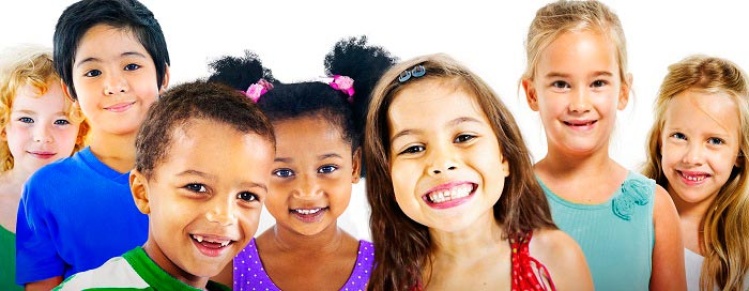The findings also indicate that more than 20 per cent of the population speaks a second language at home, while 300 different languages are spoken across the nation.
It’s no news that Australia is a country of migrants who have brought their own language, culture and values with them, but when it comes to raising children in a multicultural home, what is the best approach?
Professor John Hajek will seek to answer this question during the upcoming ‘Raising children in more than one language’ seminar, to take place at The University of Melbourne’s Copland Theatre.
The seminar will offer advice and delve deeper into the concept of raising children bilingually.
Each of the seminar’s key speakers will draw on their own interest in and personal experience of bilingualism or multilingualism.
Born and raised in Australia to a Slovenian mother and half-Czech, half-Croatian father, Prof. Hajek was exposed to eastern European tongues during his formative years.
His first words of English were spoken when he began school.
During his tertiary studies, the professor began studying Italian, which he now speaks fluently without the slightest accent.
Having graduated in Australia, he spent stints in Florence and Padua, an experience which gave him an accent described by those who know him as “from somewhere between Bologna and Trieste”.
Though he is now the head of the Italian department at the University of Melbourne, Prof. Hajek continues to speak his parents’ mother tongues at home.
“For me, growing up speaking and using different languages was a completely normal experience,” he explained, adding that this is true for many children of migrants who came to Australia from the 1950s to the 1970s.
While many parents worry that raising bilingual children can have a negative impact on academic results, Prof. Hajek says that exposing children to different languages from a young age has no proven negative side effects, even when it comes to school.
A scholastic context is different from that of a familial one and they should be seen as two separate worlds.
Prof. Hajek claims that children who are raised speaking multiple languages reap huge benefits in the long term.
In fact, it’s proven to be one of the best ways to prevent some degenerative disorders, such as dementia.
The professor adds that there’s also no sense in worrying that bilingual children could encounter problems and confusion; learning another language will actually train and develop their brain.
Findings also show that if children attend school in an English-speaking country, but grow up learning Italian, there is more chance of them learning to read and write earlier and faster than their monolingual peers.
Studies by Australian institutes point to surprising figures when it comes to the number of children who are part of a family which speaks little or no English at home: in some cases, they amounted to 97 per cent of a single educational institute.
Given that the learning techniques children adopt are “transferable” from one language to another, Prof. Hajek believes that it would be ideal to teach Italian, Spanish, German and Indonesian to children to allow them to pick the languages up faster.
In fact, these languages are more phonetic than English and are also helpful when it comes to spelling.
Prof. Hajek explains that it’s essential for parents, relatives and friends to speak to children in the appropriate language from their first days and continue to do so even if they refuse to “accept” it.
In many cases, bilingual children use their peers as a reference point and are reluctant to adapt to their family’s own language and culture.
However, they will eventually come to understand the value of this gift and begin to accept it.
For children of migrants who learnt another language from their parents and who are in turn ready to start their own family, it’s important to choose which approach to take right from the beginning.
Even if they don’t speak the language perfectly, they can still choose to speak it - mistakes and all - to familiarise their children with it.
It’s vital to be consistent with the approach, however.
It will be very difficult to change the approach and for children to adopt another language further down the track.
If parents find themselves in this situation, the best strategy is to seek help from grandparents, relatives and language schools and resort to travel.
Seeing that other languages exist, and are used in other contexts, will help children to understand its usefulness.
Another common case is when a parent or grandparent speaks in one language and the children respond in another.
This situation results in passive learning, which will allow children to familiarise themself with a foreign language and learn it more quickly.
When it comes to Italian, one crucial aspect must be considered: dialects.
For example, the Basso family migrated to Australia in the 1950s and their story is rather tragicomic.
Born and raised in Werribee, the oldest son Maurizio decided to return to Treviso with his family at the age of 17.
Once they had arrived, ready to recommence their life in Italy, Maurizio decided to turn on the television for some light viewing.
After a few minutes of confusion, he ran to his father and sceptically asked: “Dad, these people aren’t speaking Italian, are they?”
The response he received was unexpected: “No, it’s you who doesn’t speak Italian. You speak the dialect of Veneto.”
Maurizio then decided to learn Italian through his daughters’ education, making it hard to communicate in English and losing the opportunity to raise them bilingual.
The upcoming seminar is open to anyone interested in learning more about this important topic.
Organised every year for more than two decades, the free event will take place on Sunday, November 19, and will consist of two parallel sessions: one conducted by Susanne Döpke and Prof. Hajek, who will shed light on the basics of raising bilingual or multilingual children, and one led by Edith Nicolas and Averil Grieve, who will focus on the playgroup and school atmosphere.












